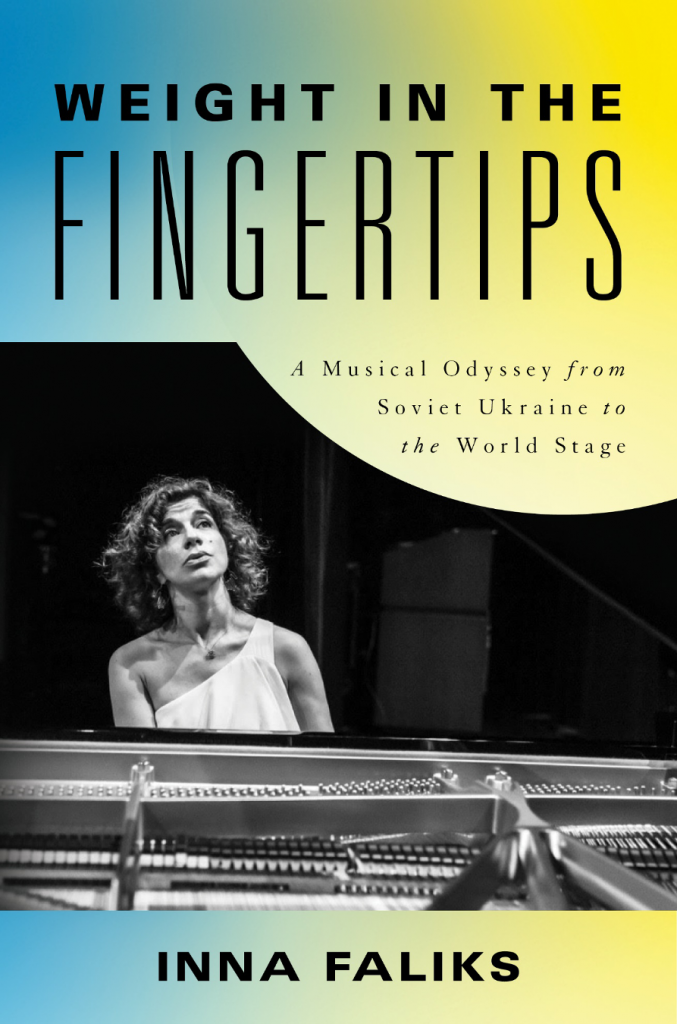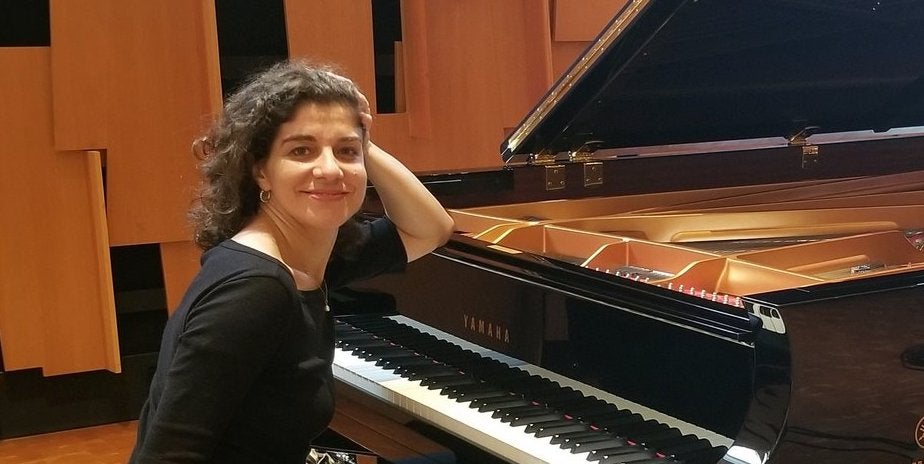Inna Faliks is known the world over as an adventurous and passionate concert pianist. But few know her journey. She was born in Odessa, Ukraine, part of the Soviet Union at the time. Her family fled Soviet repression and antisemitism, and endured a long journey that took them through Vienna, Rome, and ultimately to Chicago.
On October 14, Inna Faliks’s memoir Weight in the Fingertips: A Musical Odyssey from Soviet Ukraine to the World Stage will be released by Backbeat. We had a chance to sit down with Inna in advance of the release.
How long have you been working on this book?
Oh, it’s been twelve years now. I started writing it when I was pregnant with my son. I was very pregnant at the time and so I had to cancel a gig I had, playing a concerto with an orchestra. But I had to do something, and I had such vivid memories of my childhood that I just started writing them down.
Your childhood in Odessa?
At first, yes. I wrote those stories down, and then I started writing about our experiences as refugees, and about the long journey to Chicago. There was a point where I realized that this was more than just stories I was writing, that it would have to be a book.

Your family fled the Soviet Union when you were ten years old. What was that like?
Well, I remember being terrified about crossing the border. I had brought some of my books, and one of them was Mikhail Bulgakov’s The Master and Margarita. It had been banned in the Soviet Union, so you could only find it underground in Odessa. But I loved that book, and I took it with me. So I was terrified that the border guards would go through my possessions, find the book, and then arrest me for being a dissident.
Did you have any trouble?
No! It was so disappointing as a ten-year-old. (Laughs.) They weren’t interested in me at all, and of course I wanted to show off how precocious I was with all my books that I brought.
But many things were hard about the experience. We lived in one room with two other families and their children – for a Soviet child, this was no big deal, but for most children today in the States, this is inconceivable, thankfully. My parents brought suitcases filled with trinkets from Ukraine. I didn’t understand until we arrived in Vienna that they brought those things to sell at flea markets, because it was the only way we would have any money. It was hard watching my father stand at the market and peddle goods. Here he was, this very intellectual man, and no one was paying attention to him. That was devastating for me as a child. I told him, “Papa, stop doing this, don’t do this.”
How did your father handle it?
He stopped taking me to the market! It was difficult and scary for my parents, but I know they were besides themselves with excitement to see Rome when we had been stationed there, for a few months. My dad knew Rome really well, like the back of his hand. He had never been there, but when you lived in the Soviet Union, behind the iron curtain, you studied places that you knew you would never get to travel to. He had read so much about Rome. He knew every monument, every street.
Since then, Italy is a very important place for me and my music making. I even got married there!
That is a remarkable story, the story of how you met your husband.
It is a cinematic love story that spanned decades and continents! I was so happy to be able to share that story in the book.
When we finally made it to Chicago, we had only $200 to live on. My mom insisted we spend it on a spinet piano.
You dedicated the book to your mother. What was her influence on you growing up?
My mother passed away two years ago. She was a gifted pianist and teacher. She was my first piano teacher. She put everything into me. But she was not a stage mom, or a tiger mom. She was reserved. She was a wonderful teacher for all of her students.
When we finally made it to Chicago and got a place, we had only $200. That was how much cash we were allowed to take out of the Soviet Union. My mom insisted we buy me a spinet piano to practice on. While we were immigrating, I practiced mostly on the kitchen table. My mom put everything into me. She started me on my musical journey.
And that’s really what this book is about. It is a journey from Soviet Ukraine to the world stage, but it is also a musical journey. Artists face a difficult life path as they find their voices. We are always in conversation with teachers and mentors. You have to be true to your voice, and you also have to work with teachers whose instruction sometimes works and sometimes doesn’t. And it is about performing and being a part of the musical world, with all its joys and all its perils and pain.
